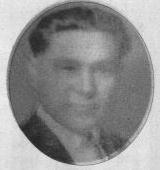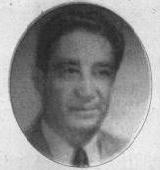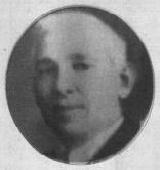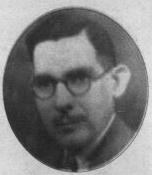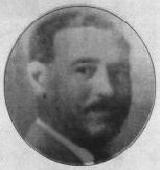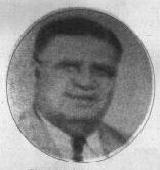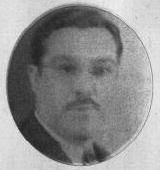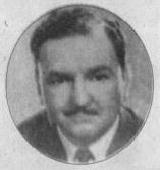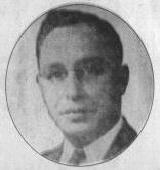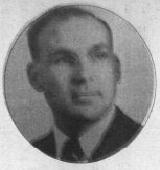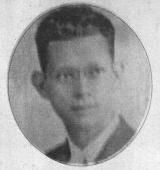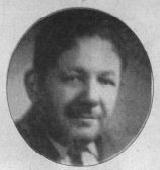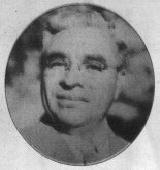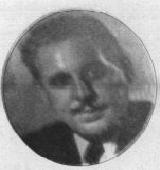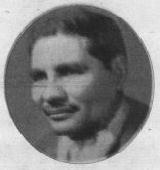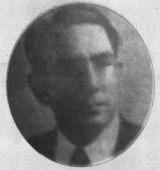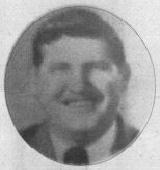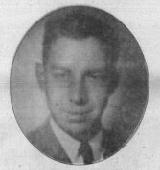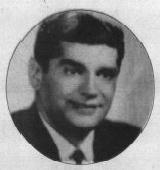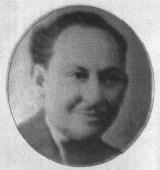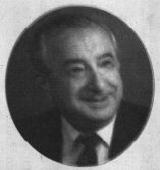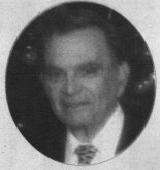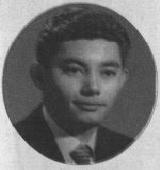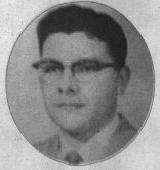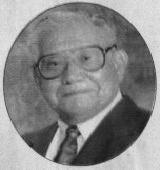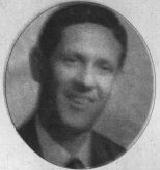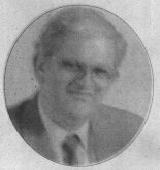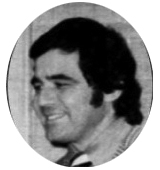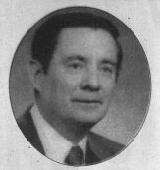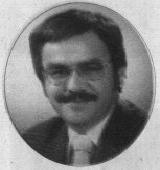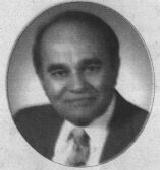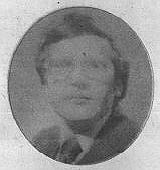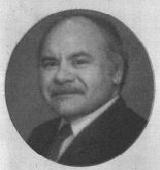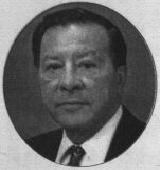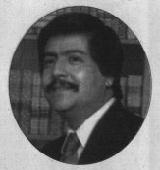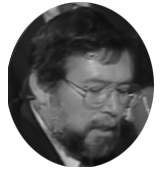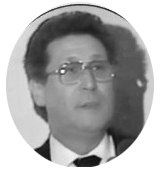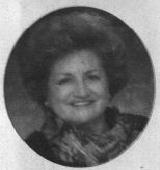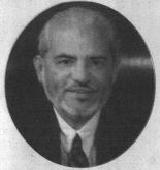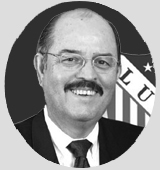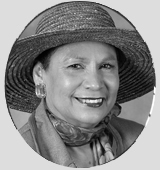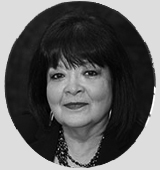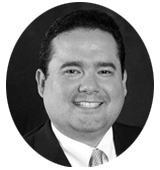Past Presidents
Introduction
The founding of the League of United Latin American Citizens (LULAC) marked an important moment in the history of Hispanic people in the United States. It signaled the end of one era and the beginning of another. It embodied the will of a people to overcome inequality, discrimination and injustice, to claim their rights as U. S. citizens, and to access the American dream. To the Hispanic, it was a soul-wrenching demand upon a people who had come to the New World to implant their culture and had stubbornly clung to their language and traditions. The LULAC founders felt that the times demanded that Hispanics in the United States make a total commitment to their new homeland, however unwillingly they may have been incorporated by conquest, economic need or political exile. To the Anglo, LULAC's simple proclamation had the symbolic force of planting a flag on ground that had not been conceded.
When the United States of North America annexed one-third of Mexico's territory following the Mexican War, there were 77,000 Mexican citizens living in the conquered lands. These persons were given the option of accepting full U. S. citizenship or returning to Mexico. Hispanic civilization had been in conquered territory for 250 years when the Anglo took over. Most of these conquered people chose to stay in the lands they had settled and, in many cases, raised generations of family. But though the Treaty of Guadalupe Hidalgo said they were citizens of the United States of North America, their conquerors had not accepted that reality.
The ink was hardly dry on the treaty when the Anglo began to deny the Mexican Americans their rights as citizens. Their lands were taken away; they were stripped of political power; they were isolated from the larger community; their culture was disparaged; their role in history was erased; they were relentlessly attacked physically and demoralized.
Passing decades did not diminished the prejudice. Instead, the feeling that Mexican were an alien presence intensified when irrigated farming, railroad building and mining began to pull large number of workers across the border and the bloodiest civil war in the hemisphere began to expel refugees from Mexico into the United States of North America.
By claiming citizenship for themselves and, by extension, for all Mexican American people, the founders of LULAC were challenging the prevailing view and serving notice that they would be laying claim to all the rights and privileges due U. S. citizens. Furthermore, they were immediately exercising one of those sacred rights, the right to organize, and utilizing it for the benefit of their people.
The portent of that action was not lost on the majority. It signaled that Hispanics in the U. S. had advanced beyond the elemental struggle for survival that had exhausted their energies for so many decades. Implicit in this advance was a modicum of economic success that permitted the members of LULAC to turn their attention from the single-minded pursuit of personal need to the needs of their people as a society. Organization also indicated to the Anglo majority that the Mexican American would no longer be easy to manipulate.
At the same time, LULAC was confronting the identity crisis of Mexican Americans. Denied the security of belonging that comes from acceptance, they did not consider themselves Americans. In some sections of the Southwest, they still saw themselves as Mexicans, in others , they called themselves Hispanos.
As a people apart, Mexican Americans had institutions modeled upon indigenous culture. Hispanic civic organizations dated back to 1894 when La Alianza Hispano Americana was founded. La Sociedad Progresista Mexicana y Recreativa, La Camara de Comercio Mexicana, and La Sociedad Mutualista Mexicana were organized around 1924. There were also hundreds of Catholic organizations that were founded in the early part of the 20th century. As their Spanish names imply, these organizations linked the Mexican American to Mexico. LULAC proposed to change all that. The League of United Latin American Citizens was modeled on U. S. civic organizations, in many ways similar to the National Association for the Advancement of Colored People (NAACP), founded in 1910, and had also been likened to the Lions, Elks and Kiwanis clubs. To the U. S. Hispanic citizen, LULAC served notice that it was time to stop gazing nostalgically to Mexico or Spain and clinging to the mentality of isolation in colonias. LULAC announced that it was time to establish roots in the United States and venture forth to mix with the dominant society in all aspects of life.
A Dark Epoch for Mexican America
Hispanic were just emerging from their darkest epoch when LULAC was founded. Survival itself was in question. More Mexicans were lynched in the Southwest between 1865 and 1920 than Blacks in other parts of the South and cases of Mexicans being brutally assaulted and murdered were widespread. No jury would convict an Anglo for killing a Mexican. One famous Anglo gunfighter when asked how many men he had killed responded, "Each notch on the handles of my guns represent one kill and I have twenty-seven notches, not counting Mexicans." Discrimination did not know an age limit. In one incident a 14-year Mexican American girl choked to death while eating a dry tortilla because her peers were not allowed to get her a drink from a "white only" water fountain.
"No Mexicans Allowed" and "No Mexicans Served Here" were commonplace signs. There were Black and White schools, that were supposed to be separate but equal, and there were also Mexican schools, for which there were never even a pretense of equality.
Mexican Americans were denied the right of suffrage through the creation of a white primary. Since Mexican Americans were not considered white, they were turned away from the voting polls. Mexican Americans were not permitted to buy real estate in certain residential sections or allowed to serve on juries.
There was also economic discrimination. Mexican American, if hired at all, were relegated to the lowest jobs and received lower wages for the same work done by Anglos. There were never any Mexican Americans in office or management positions. Mexican Americans suffered the stereotype mentality that all were lazy, poorly dressed, dirty, ill educated, and thieves. This was the excuse used to deny them jobs. In the end, most Mexican American families worked in the fields, farms, and ranches. Most of their children never had an opportunity to attend school. The few that did attend school went to Mexican Schools that had the worse teachers and the buildings that were in deplorable conditions. There were no laws protecting Mexican Americans that were farm workers. Mexican Americans who went on strike were unceremoniously taken across the border without any fear of retribution.
Despite the widespread murder, repression, intimidation, and prejudice, there were areas along the border where Mexican Americans were able to build a strong tradition of self-determination, acquire education, and experience success in business. It was in San Antonio, Brownsville, Corpus Christi, Laredo, El Paso, and similar places that stirrings began to occur early in the 1920s. Almost spontaneously, leaders began talking about the need to organize.
In 1921, Mexican Americans demanded placement on jury rosters by filing several lawsuits. In addition, in this year courageous Mexican Americans started organizing in Texas and demanding that juries reflected the composition of the population.
The Foundation of LULAC
The foundation of LULAC was started by three outstanding organizations of the day. The Knights of America, Council number 4 of the Order of the Sons of America, and the League of Latin American Citizens.
The Knights of America organized in 1921, in San Antonio, Texas, was the oldest of the three and had been founded by Frank Leyton, Melchor Leyton, Pablo Cruz, Abraham Armendariz, Merci Montez, Leo Longoria, Vicente Rocha and John Solis. The Knights of America had done much for its community, was under the leadership of M. C. Gonzalez.
The Order of the Sons of America, the second oldest had councils in Sommerset, Pearsall, Corpus Christi, and San Antonio, was under the leadership of a gentleman from San Antonio. However, it was council number 4 from Corpus Christi, founded by Louis Wilmot, Joe Stillman, Dave Barrera, Al Cano, and Desi Luna, and led by Ben Garza, that was the main uniting force for a merger. The League of Latin American Citizens, the youngest and the most progressive, founded by professor Luz Saenz, Pablo Gonzales, Filiberto Galvan, and under the outstanding leadership of Attorney Alonso S. Perales, had councils in Alice, Austin, Brownsville, Encino, Harlingen, La Grulla, Laredo, McAllen, Penitas, and Robstown. This new and young organization had done just as well, and in some instances better, and was growing at a much faster pace than the other two combined. This organization counted among its members such leaders as J. T. Canales and Clemente Idar, a brilliant orator that was a national organizer for the American Federation of Labor.
Council number 4 of The Order of the Sons of America was concerned that to many organizations were been formed and it seemed to them to be a step toward possible division and weakness. Ben Garza and his council called a meeting attended by M. C. Gonzales, Mauro Machado and John Solis of the Knights of American and Alonso S. Perales, Luz Saenz and Felipe Herrera from the League of Latin American Citizens.
These groups followed the the same principles and purposes, it was perhaps natural that they would eventually attempt to unite. The inevitable happened at Harlingen in 1927.
The League of Latin American Citizens invited the Order of the Sons of America and to the Knights of America to attend an upcoming event in Harlingen. On August 14, 1927 both organizations traveled to Harlingen for the installation of officers for the League of Latin American Citizens. After the installation ceremony a special meeting was called and the President General of The Order of the Sons of America invited The League of Latin American Citizens to unite with them. During the meeting one incident was perhaps of more long term historical significance. At one point during this meeting, J. T. Canales proposed that if a merger did come about and a new organization was formed that it be composed only of U. S. citizens. Since the majority of those at this meeting were Mexican citizens, there was a strong protest and more than 90% of those in attendance walked out of the meeting, leaving only a few members and visitors. The three organizations could not immediately agree on a merger without first meeting with their respective members, but a tentative step was taken with the following resolution, adopted at the Harlingen meeting.
Resolution
"Resolved that the chair shall appoint a committee consisting of one delegate from each town here represented, of which the chair shall be the chairman, and that this committee shall have full and plenary powers from this assembly to study the constitution and by-laws of The Order of the Sons of America and make suggestions tending toward their amendment, if they see fit to amend their constitution, and communicate with a committee from the Order of the Sons of America with equal powers, to the end that this organization (the League) may be incorporated into the Order of the Sons of America."
A year later, on August 4, 1928, leaders pushing to unite the various groups issued a proclamation urging all Latin American civic organizations to merge into one. The committee named to bring about the merger consisted of Ben Garza, A. de Luna and E. H. Martin from Corpus Christi, John Solis and Mauro Machado from San Antonio, and Alonso S. Perales and J. T. Canales from Harlingen.
There were serious doubts as to merger because of strong personality differences that existed between the leaders of The League of Latin American Citizens and The Order of the Sons of America. With this in mind, The Order of the Sons of America and The Knights of America agreed to unite even if The League of Latin American Citizens did not. A year passed without a merging effort. In the meantime, Alonso S. Perales was in constant contact with Ben Garza. Finally, on February 7, 1929, Council #4 withdrew from The Order of the Sons of America when it became clear that its President General would not call the long awaited unification convention. At this meeting, with Alonso S. Perales in attendance as a guest, Council #4 voted to have and to host a uniting convention. The date set was February 17, 1929, at the Obreros Hall, on the corner of Lipan and Carrizo streets in Corpus Christi. Two long years had come and gone since the first merger attempt and now it was about to take place.
The Uniting Convention
February 17, 1929, was cold and rainy as delegates and other guests entered Obreros Hall in Corpus Christi, Texas, to start the meeting. Besides the Corpus Christi Son of the Order of the Sons of America, there delegates from the Knights of America from San Antonio and the League of Latin America Citizens from the Rio Grande Valley. In all, there were 25 delegates and 125 Mexican American observers present. Deliberations were conducted in both English and Spanish.
The first order of business was to elect a temporary executive committee. Elected to this committee was Ben Garza as chairperson, M. C. Gonzalez as secretary, and J. T. Canales and J. Luz Saenz as members.
It was not a foregone conclusion that history would be made on this day. Not everyone was anxious to create one organization out of the three groups. Problems stemmed from the inherent reasons why more than one organization was established in the first place. Another problem was the name of the proposed new organization. The group from Corpus Christi wanted a short new name but the members of the League of Latin American Citizens were loathe to surrender what they thought was an aptly descriptive title. However, the strong urge to merge resurfaced after strong moving speeches from Alonso S. Perales, M. C. Gonzalez and Ben Garza.
Finally, a resolution, as follows, establishing the new organization was drafted:
"WHEREAS, for many months of untiring efforts a group of citizens of the City of Corpus Christi, Nueces County, Texas, and former members of Council number 4 of the Order of the Son of America have struggled along using their best means of friendship and accord to unite into solid and great organization two other organizations (The Knights of America of San Antonio and the League of Latin American Citizens, of the Rio Grande Valley) that by principle were pursuing the same identical ideals.
WHEREAS, this group of members had the only thought in mind to render the best undivided help to our brethren throughout the great states of Texas, Arizona, New Mexico and California and knowing aforehand that neither one of these organizations alone, single-handed and divided, could render such help, then,
IT IS RESOLVED by this group of citizens of Corpus Christi, and former members of Council number 4, of the Order of the Son of America, to issue a call to all these organizations and to use their best efforts to bring about the merging of the three organizations into one, and on the 17th day of February, A. D. 1929 that long expected reunion was accomplished."
The second order of business was to form an Organizational Committee with delegates from each organization - Juan Solis and Mauro Machado of The Knights of America, E.N. Marin, A. DeLuna, and Fortunio Trevino of the former Council #4 of The Order of the Sons of America, and Alonso S. Perales and J. T. Canales of The League of Latin American Citizens.
The committee went in to adopt a set of temporary rules. These rules called for a Constitutional Convention for May 18-19, 1929 in Corpus Christi, Texas and for the Executive Committee to administer LULAC until the constitutional. The committee was also given the task of recommending a temporary name of the new organization. This was a very delicate task since each organization had a proud history, a strong constitution, a solid structure, and strong leadership.
Alonso S. Perales proposed the name "Latin American Citizens' League." Mauro Machado suggested the word "United" as apropos for the merger and as a way of differentiating the title from "The League of Latin American Citizens" name. Juan Solis made a motion that the name read "United Latin American Citizens." J. T. Canales made a friendly amendment to the motion that the name read "League of United Latin American Citizens" (LULAC). Juan Solis accepted the friendly amendment. The committee went on to adopt a motto. J.T. Canales proposed, "All for One and One for All," as a constant reminder of the trials of unification and as basis for all future activities of LULAC.
After a four hour meeting, the committee presented its recommendations to the delegates. The delegates approved all the recommendations.
The Constitutional Convention
Three months later (May 18, 1929 - Sunday), the first LULAC convention was held at Allende Hall in Corpus Christi. This was not a good day for a convention. The rain was filling the dirt streets, however; the task was great and the mud splashing on their shoes was of little concern to the delegates. A convention that would solidify the merge that had occurred three months earlier was about to begin. Ben Garza, called the first LULAC Convention to order.
The first order of business was a constitution. The assembly promptly adopted one proposed by J. T. Canales and based upon the one used by The Knights of America. Added were nine articles, the first that established the official name of the new organization as the "League of United Latin American Citizens." The constitution gave governing powers to a Supreme Council consisting of two members and two alternates from each council. Officers and members were required to accept an oath stating they would "be loyal to the Constitution and to the government of the United States of North America, and would obey its laws." Membership was restricted to native born or naturalized citizens of Latin extraction 18 years of age, although Anglos were later admitted. The constitution opened honorary membership to persons of distinction and those that had given distinguished service to LULAC. English was declared the official language of LULAC. The American Flag became its official flag and American,The Beautiful its official song, and The George Washington's Prayer its official prayer. Also, adopted were Robert Rules of Order as the governing rules during meetings and conventions. The Aims and Purposes of LULAC embodied in 25 statements were also adopted. All other matters that had been approved as temporary at the February 17, 1929 Organizational Convention were given the final seal of approval. All local councils of the merging organizations were recognized and Corpus Christi for its efforts in behalf of the merger, was given the honor of being Council number 1. The next order of business was the election of officers.
The delegates, pleased with the calmness of Ben Garza and with the outstanding efforts that he had given to the merging efforts, elected him the first President General of LULAC. Manuel C. Gonzales became Vice President General, A. DeLuna, Secretary General, and Louis C. Wilmot, Treasurer General. These officers undertook the thankless job of guiding a new and young organization besieged by many enemies and skeptical friends and facing a future beset by pitfalls.
Vendidos?, Never!
The three organizations that merged into LULAC were by not the only Mexican American organizations of that era. Many wanted to revolt and regain the territories lost to the United States by Mexico after the Mexico-Texas war. Others wanted to continue to defy the authority of the dominating population. In those days, Mexican Americans had to be very careful when they gathered. If they gathered in large numbers, they would cause suspicions and faced charges of communism. Many in the Hispanic communities felt insulted and considered LULAC members a group of "vendidos" (turncoats). They could not understand why LULAC members would go out of their way to embrace an Anglo society that had been so cruel to Mexican Americans. However, the founders of LULAC had seen many Mexican American organizations flourish and disappear within a couple of years, and without accomplishments. The founders of LULAC were determined not to allow the same to occur to LULAC. Therefore, these founders forwent many of their convictions to avoid suspicions of un-American activities and to create a safe haven for its members.
The Rapid Growth of LULAC
The founders of LULAC envisioned an organization strongly embraced by Mexican Americans throughout Texas. In this belief, they were right! Four new councils had joined LULAC at its first convention. They were from Alice, Robstown, Falfurrias and Edinburg. However, what followed caught LULAC leaders by surprise and almost unprepared.
Word of the new organization spread rapidly and at the first first convention there were visitors from Floresville, Sugarland Gulf, Mission and Laredo. A banquet was held on the first evening of the convention and the City Attorney of Corpus Christi, the District Attorney of Nueces County, and the Secretary of the Corpus Christi Chamber of Commerce addressed the delegates. By 1932, LULAC had spread into the states of Arizona, Colorado, New Mexico, and California. That LULAC would be one day established in 48 states, Puerto Rico, Mexico and in Heidelburg, West Germany (a military base) was probably far from the minds of these founders on that rainy Sunday of May 18, 1929.
Denoted by the Philosophy of LULAC is the fact that the founders' intention was the inclusion of all Hispanics and not just Mexican Americans.
The Battle Had Just Begun
For the early LULAC members, the battle had just begun. Anglos did not look kindly upon Mexican Americans trying to improve their education. LULAC members were harassed and ostracized in many ways. Many were hounded out of their jobs and businesses for joining the League.
A "Flying Squad" was organized to recruit members and establish new councils. Groups of dedicated members traveled the state of Texas in their personal cars on weekends. They had no funding for gas, food, lodging, auto repairs and air conditioning. Strengthening and organizing the League was a labor of love and sacrifice. Members of the Flying Squad spent almost every weekend away from their families, slept in their cars, took bread and made sandwiches on the way, borrowed money to pay for gas, and washed in puddles on the side of the road. LULAC organizers were barred from entering towns and run out if they entered. In one incident, an organizer from Houston, Texas, who would become a LULAC National President, dressed as a woman in order to pass through a sheriff's blockade setup to keep him from entering the City of Richmond, Texas, to organize a LULAC council. In another incident. members of a flying squad on travel could not get hamburgers because they were Mexican and not Black.
Organizing was made difficult by the requirement that members be citizens. Potential members often had parents that were not citizens and hesitated to join an organization that made this distinction. There was also fear of joining an organization that was out beating the bushes and confronting authorities.
Problems were encountered throughout the Southwest. New LULAC members were intimidated by the Anglo establishment. They were accused of being subversives, communists, agitators, and rabble rousers. A LULAC member form Houston, that would become the INS Commissioner under the Jimmy Carter Administration, recalls his council being arrested and jailed under the suspicion of being communist activities. Another, incident occurred when a Past National Vice President, also from Houston, who had singlehanded defeated the English Only movement in Texas, was ordered by his supervisor to resign from LULAC or lose his job. This LULAC member filed a lawsuit against this supervisor, against the federal contracting company and the President of the United States and won the case.
Anglo opposition to LULAC organizing efforts continued unchecked for 20 years after the organization was founded. Not even service above and beyond the call of duty removed the Anglo's prejudice. A World War II Medal of Honor winner was severely beaten in Richmond, Texas, because he asked for service in a restaurant. Even the Mexican Consul was refused service in one of the fine restaurants in Houston.
Many early members were scared out of the League. Others left because they could not stand the confrontations, the suspicions, and the accusations that they were not loyal Americans.
Its History
Over the last 70 years, LULAC has continued to grow and work hard to bring about many of the positive social, economic and political changes that Hispanic Americans enjoy today. No other Hispanic civil rights organization, with an all volunteer membership base can match LULAC's record of achievements and services to Hispanic Americans.
Today, LULAC represents not only Mexicans Americans from the Southwest, it also represents Hispanics in most of the United States, including Puerto Rico and Guam. Membership has expanded to include all men and women of Hispanic origin that are legal residents of the United States or its territorial areas.
LULAC is the cornerstone of some of the most successful Hispanic national organizations. LULAC formed The American GI Forum (AGIF) to address the rights of Hispanic veterans. The Mexican American Legal Defense and Education Fund (MALDEF) as the legal arm of the Hispanic community. SER - Jobs for Progress, Inc., has trained, and retrained, and found jobs for thousands of Hispanic Americans. In addition, LULAC has developed thousands of low income housing units through the Southwest.
The Little School of the 400 became the model for the very successful Project Headstart. the LULAC National Education Service Centers (LNESC) and the LULAC National Scholarship Fund (LNSF) have provided educational advise, tutoring, mentoring, and millions of dollars in scholarship funds.
LULAC has become an important influence in national policy making with a permanent national office in Washington, D. C. While the many successes of LULAC should be celebrated, its work is far from over.
LULAC continues to work for the betterment of Hispanic Americans. It continues to fight discrimination, poverty, educational inequalities, disparities in political representation, the Hispanic student high dropout rate, immigration issues, language issues, Hispanic health issues, etc. LULAC will forever address those issues that impact the lives and future of all Hispanic Americans. It will continue to work to assure that future Hispanic American generations receive all the constitutional rights inherit by them as citizens of the United States of North America.
In 1945, a California LULAC Council successfully sued to integrate the Orange County School System, segregated based on the notion that Mexican children were "more poorly clothed and mentally inferior to white children."
Additionally, in 1954, LULAC brought another landmark case, Hernandez vs. the State of Texas, to protest that not a single Mexican American in Texas had ever served on jury duty. The Supreme Court ruled this exclusion unconstitutional.
Since that time, LULAC has fought for voting rights and full access to the political process, and equal educational opportunity for Hispanic children. The struggle has been long and difficult, but LULAC's record of activism continues to this day. LULAC councils across the nation continue to hold voter registration drives and citizenship awareness sessions, sponsor health fairs and tutorial programs, and raise scholarship money for the LULAC National Scholarship Fund. This fund, in conjunction with the LNESC (LULAC National Educational Service Centers), has assisted almost 10 percent of the 2.1 million students who have gone to college.
LULAC's activism has extended into the areas of language and cultural rights as well. In response to an alarming increase in xenophobia and anti-Hispanic sentiment, LULAC councils have fought back by holding seminars and public symposiums on language and immigration issues. LULAC officers have spoken out on television and radio against the "English Only" movement to limit the public (and in some cases -- private) use of minority languages.

